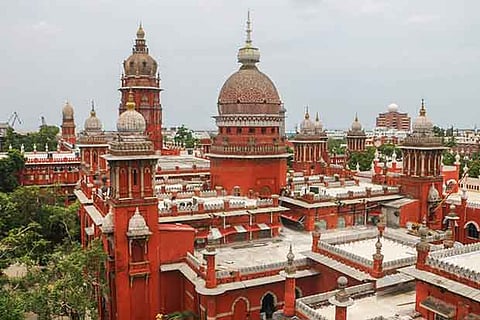

CHENNAI: Upholding the constitutional validity of the Act, the first bench of Chief Justice Munishwar Nath Bhandari and Justice D Bharatha Chakravarthy dismissed all writ petitions that had challenged it.
However, the bench also wanted the State to review the reservation after five years as recommended by the Justice P Kalaiyarasan (retd) commission. “During the intervening period, steps should be taken to improve the standard of education imparted in the government schools so that the reservation may not further be extended beyond the period of five years,” the judges held.
“As the law would provide an opportunity to the government school student of a socially, and economically weaker background to overcome disadvantages and use his full natural endowments of physique, character and intelligence, it has a sound rationale and is in tune with the objects sought to be achieved,” the bench opined.
Govt students quota may affect general category, argues counsel
Appearing for a petitioner, advocate Sriram Panchu argued that carving 7.5 per cent from the general quota while the state is following 69 per cent reservation would affect general category candidates. He added that the National Eligibility cum Entrance Test (NEET) was the sole entrance exam for medical admissions as per the NMC Act. As the Act comes under Entry 66, the state government cannot enact a law overriding NEET, he contended.
Countering this, senior counsel Kapil Sibal submitted that the commission report highlighted the significant gap in cognitive development between students from affluent and less affluent backgrounds.
“These students have disadvantages in terms of caste, wealth, parental occupation, parental education and gender. About 90 per cent of students joining the medical courses are attending private coaching classes, but government school students do not have such privilege,” Sibal added.
Senior counsel P Wilson submitted that apart from the social and economically backward class reservation, institutional reservation was also permissible at the undergraduate level.
Advocate General R Shunmugasundaram noted that the socially and educationally backward class was already given reservation under Article 15 (4) on the basis of caste.
The bench held that the legislation was only making horizontal reservations across various categories and does not dispense with or dilute the mandatory nature of NEET.
The judges also rejected the contentions of senior advocate Xavier Arulraj, who appeared for aided-school students, observing that those students were in a better position than the government school students.
Visit news.dtnext.in to explore our interactive epaper!
Download the DT Next app for more exciting features!
Click here for iOS
Click here for Android